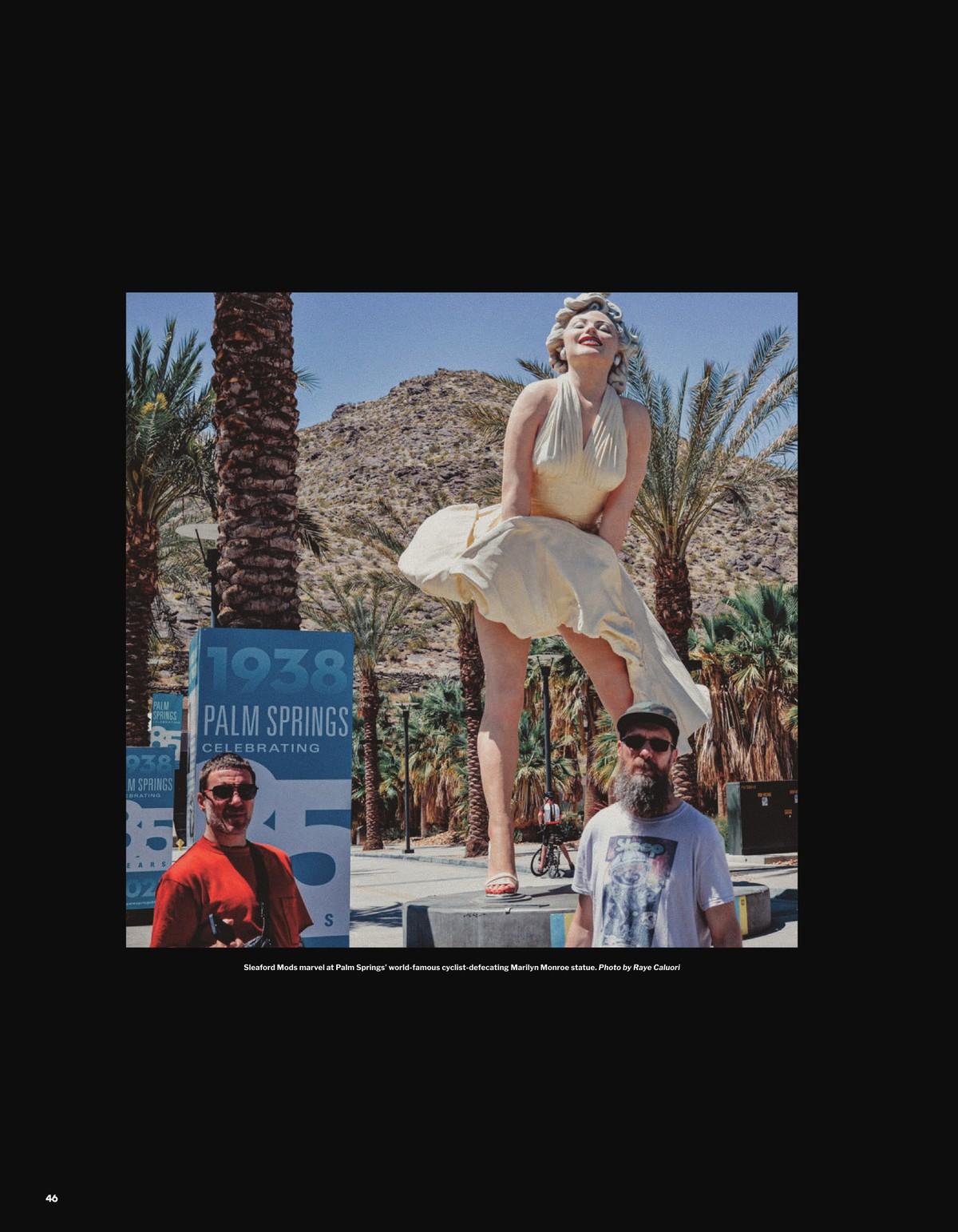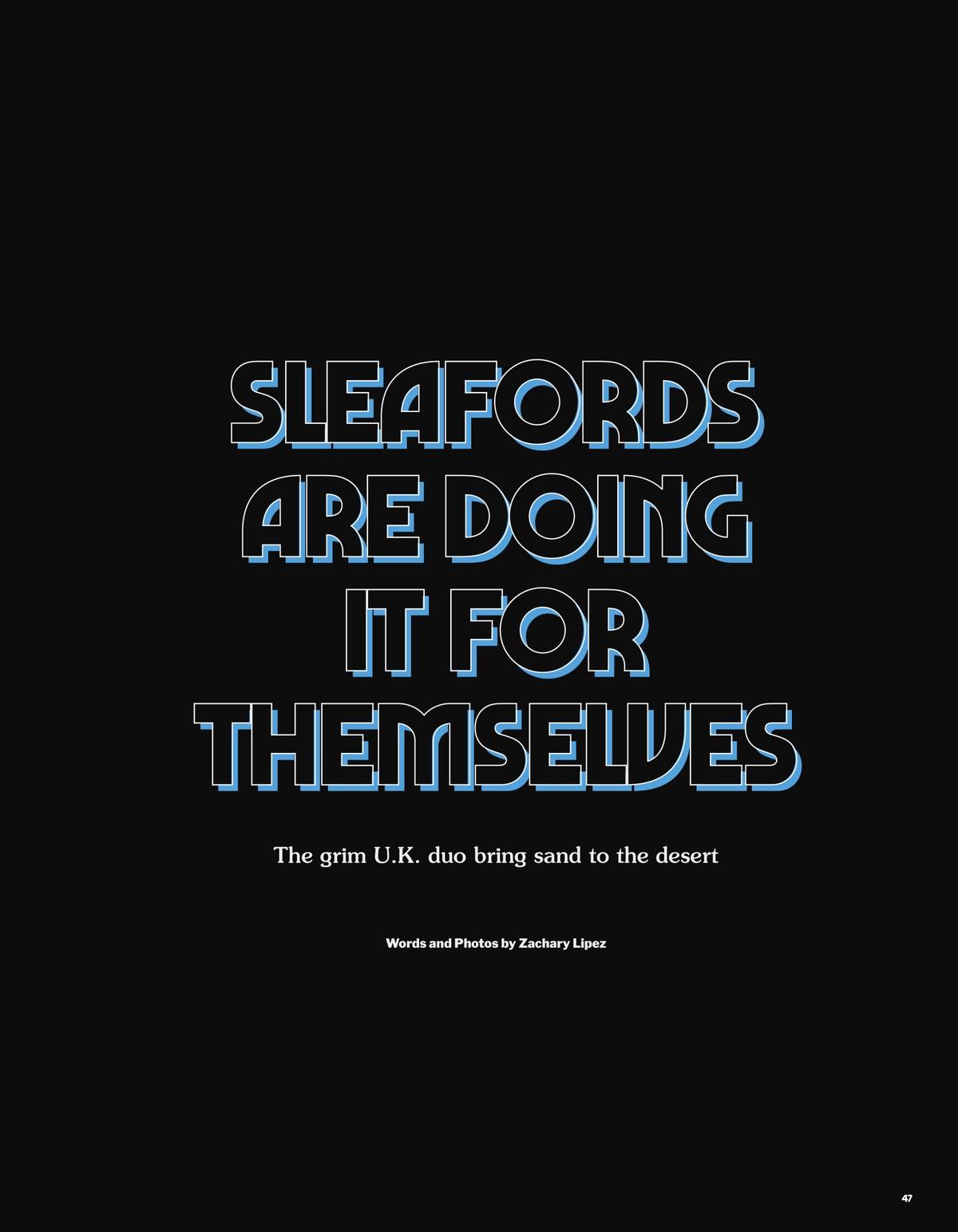SLEAFORDS ARE DOING IT FOR THEMSELVES
Coachella takes place in a desert. Do people not have a working understanding The grim U.K. duo bring sand to the desert.
June 1, 2023


Loading...

Coachella takes place in a desert. Do people not have a working understanding The grim U.K. duo bring sand to the desert.


Loading...